Can Hyaluronic Acid Cause Acne? Let’s Explore The Truth!
Worried about breaking out after using the new bottle of hyaluronic acid you just bought? It’s time to uncover the truth and understand the relationship between hyaluronic acid and acne.
On Jan 27, 2024 – 6 minutes read
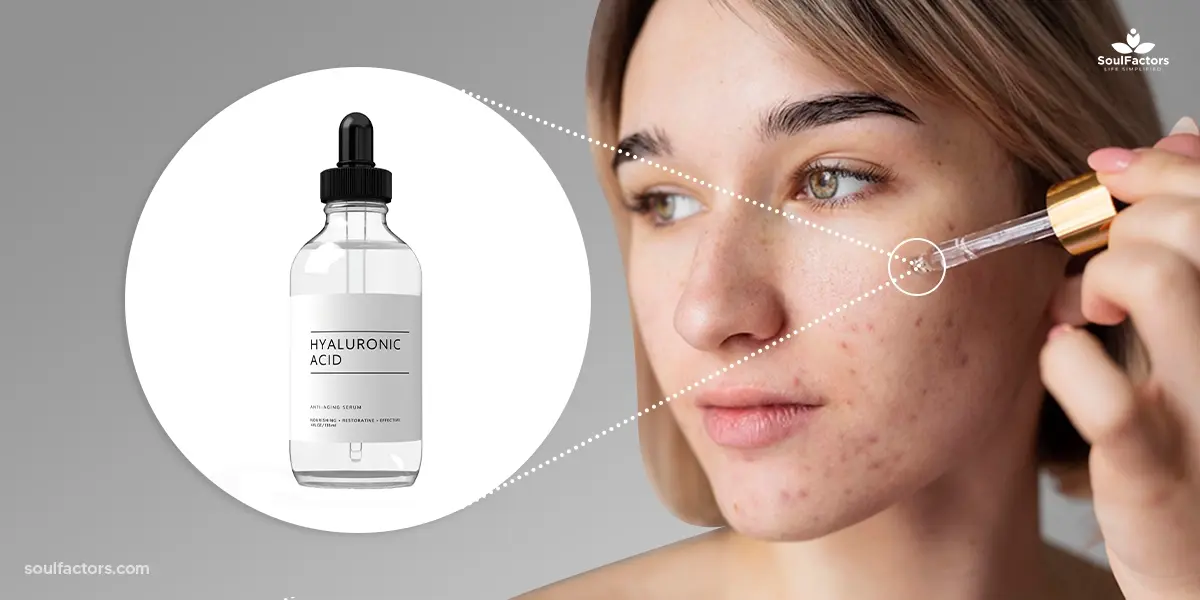
Hyaluronic acid is extremely popular in the world of skincare products, but can hyaluronic acid cause acne? If this question has popped into your head and you’re looking for an answer, then put all your doubts to rest because hyaluronic acid alone does not trigger acne breakouts. But there’s more to this. Let’s uncover!
What Is Hyaluronic Acid?
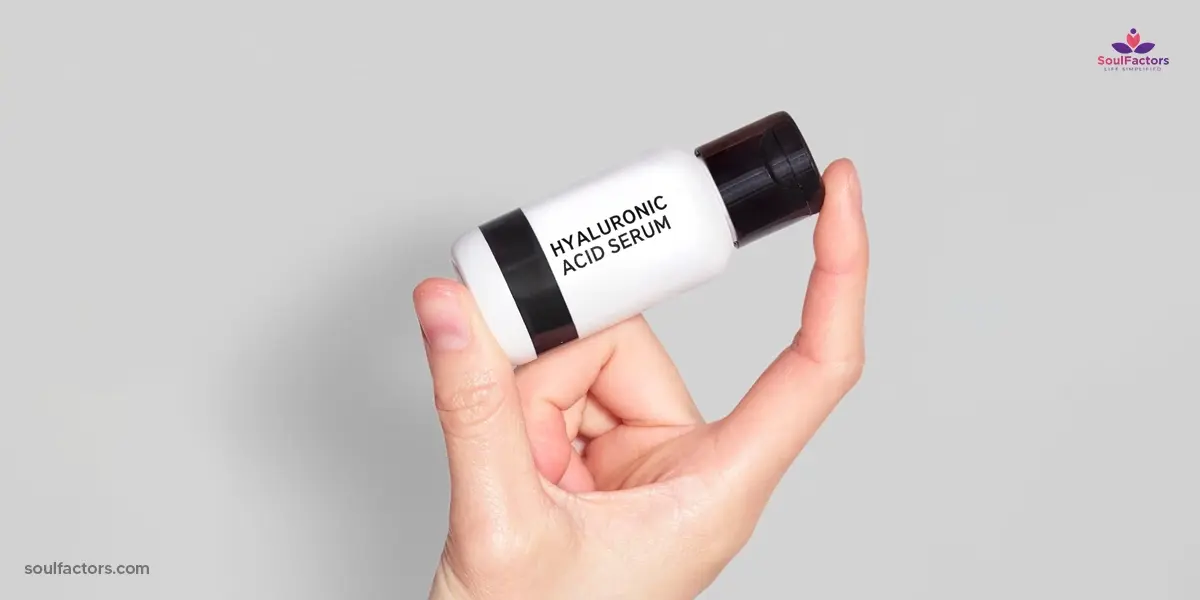
First things first. Before we discuss the hyaluronic acid-acne relationship, let’s learn a bit more about this skincare ingredient.
Hyaluronic acid is basically a humectant(1) and, therefore, has the ability to retain moisture. When you apply hyaluronic acid, it attracts moisture from the environment, retains it in the skin, and doesn’t allow it to dry.
It is a naturally occurring substance whose primary role is to nourish the skin. It keeps skin plump and reduces the formation of wrinkles. Hyaluronic acid is one of the reasons your skin has elasticity and is able to spring back to its usual place after being stretched or pulled.
The presence of this acid is not just limited to the skin. It is found in the eyes and joints as well. Its slippery texture hydrates the eyes and helps joints move smoothly without friction.
Does Hyaluronic Acid Have Any Side Effects?
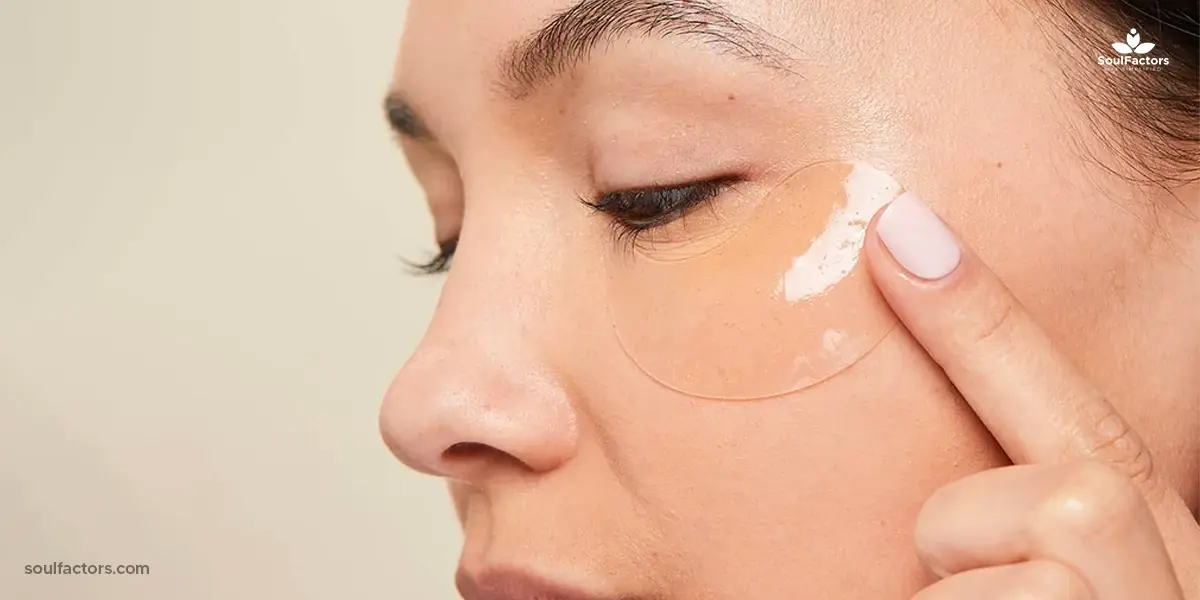
As hyaluronic acid is naturally present in your body, it usually has no side effects and is well-tolerated by most individuals when used topically. But can hyaluronic acid cause irritation(2) and allergic reactions in some people? Though rare, side effects like these can appear in individuals who are sensitive to the ingredient.
Besides topical formulations, hyaluronic acid is also administered into the skin through injections. Side effects associated with these injectables are:
- Swelling
- Bruising
- Redness
- Itching
- Pain
These side effects are mainly due to the insertion of injections into the skin and not because of hyaluronic acid itself.
How Can You Avoid Hyaluronic Acid Side Effects?
Here are a few tips to keep away from the unwanted side effects of hyaluronic acid:
- Do not use hyaluronic acid products if you are allergic to them.
- Read the product label carefully and use it as directed. Do not overuse.
- Always perform a patch test before applying the product all over your face, and stop use if you notice signs of an allergy.
- Consult your doctor before using hyaluronic acid if you have existing medical conditions and are on medications for them.
- If opting for hyaluronic acid injections, find a trained healthcare professional who has a sterile setup for administering injectables.
Hyaluronic acid may be one of the safest skincare ingredients, but we suggest you talk to a dermatologist before incorporating it into your daily routine. By doing so, you can confirm if hyaluronic acid is a good fit for your skin type or not. Plus, you will have someone to reach out to in case you get any side effects.
The Connection Between Hyaluronic Acid And Acne
Now let’s come down to the main question – “Can hyaluronic acid cause acne?” Well, like we said before, hyaluronic acid on its own does not cause acne.
The fact that hyaluronic acid is a humectant and not an exfoliant means that it does not cause the shedding of dead skin cells, which block skin pores and result in acne. Rather, it plays its part by retaining the skin’s moisture content and maintaining hydration. That’s all.
The reason why some people experience acne after using hyaluronic acid products could be due to other ingredients present in them. Preservatives and other additives are often added to improve the shelf life of products. And these can sometimes be the reason behind the breakouts.
Another reason why some people get acne after using hyaluronic acid is excessive use and environmental conditions. Say you live in a place with low humidity. Applying hyaluronic acid in such conditions can actually dry out your skin even more.
How? Here’s the explanation – Your skin has the ability to draw water from the environment. The dermis draws moisture from the air and passes it down to the epidermis and individual cells. Hyaluronic acid boosts this process of taking in moisture.
But when you live in a dry climate, applying a humectant like hyaluronic acid can lead to skin dryness because of the absence of enough moisture in the environment. Dry and dehydrated skin then triggers excessive sebum production and causes undesired breakouts.
Does Hyaluronic Acid Help Acne?
After answering the most-asked questions like “Can hyaluronic acid cause acne-prone skin?” or rather, “Can hyaluronic acid cause acne?” let’s find an answer to another important question, which is whether hyaluronic acid can help relieve acne.
While hyaluronic acid cannot directly reduce the occurrence and severity of acne, it can be a good addition to your skincare regimen if you have frequent breakouts. Its humectant properties can keep the skin hydrated and ensure a healthy skin barrier. A well-hydrated skin has fewer chances of secreting excess sebum, thereby having fewer chances of developing acne. Additionally, hyaluronic acid supports the healing of acne lesions and minimizes acne scars.
So now you know! Although you cannot expect hyaluronic acid to treat acne completely, it can be your skin’s support system to maintain well-hydrated and nourished skin that is capable of handling breakouts and its aftereffects in a better way.
FAQs
If you’re getting pimples after using hyaluronic acid, it could be due to improper application. Applying too much can draw in excess moisture and serve as a breeding ground for bacteria. Moreover, if you live in an area with low humidity, hyaluronic acid can dry out your skin, causing enhanced secretion of sebum, which means a higher chance of getting pimples.
Studies suggest that hyaluronic acid is effective in reducing acne scars. Dermatologists often use hyaluronic acid injections to improve the appearance of acne scars in their patients.
Yes, you can use hyaluronic acid if you have acne. It will heal your skin, relieve redness, and help improve acne scars. However, don’t solely rely on it for acne treatment. Ask your dermatologist to suggest a skincare routine that can help you tackle acne effectively.
Hyaluronic acid is generally safe for most individuals when applied topically. However, like with any product, there could be instances of allergic reactions in some people. Therefore, always do a patch test before applying it all over your face.
Purging usually lasts for 4-6 weeks and subsides thereafter. While hyaluronic acid is not known to cause purging, other ingredients in a product might be the cause of these temporary breakouts.
Based on suitability, hyaluronic acid stands out better than salicylic acid because it is suitable for people of all skin types. On the other hand, salicylic acid may not suit those with dry or sensitive skin, as it can result in excessive dryness and irritation.
Hyaluronic acid can be a good addition to your skincare routine if you have oily skin and acne. It will help your skin retain moisture and possibly decrease sebum production and resultant acne breakouts.
Final Words
Hyaluronic acid is a wonder serum for the skin. It can help retain moisture and keep the skin looking nice and plump. While supplementing with this naturally occurring substance can improve the skin of most people, it may lead to an allergic reaction or a breakout if used incorrectly.
So, be mindful of how you’re using it, when you’re using it, and the environmental conditions you’re living in. Keeping these things in mind can help you derive maximum benefits out of this popular skincare elixir and enjoy deeply moisturized skin like never before!

Subscribe to Newsletter
Elevate your routine, stay on trend, and embrace a personalized beauty journey with our curated insights.


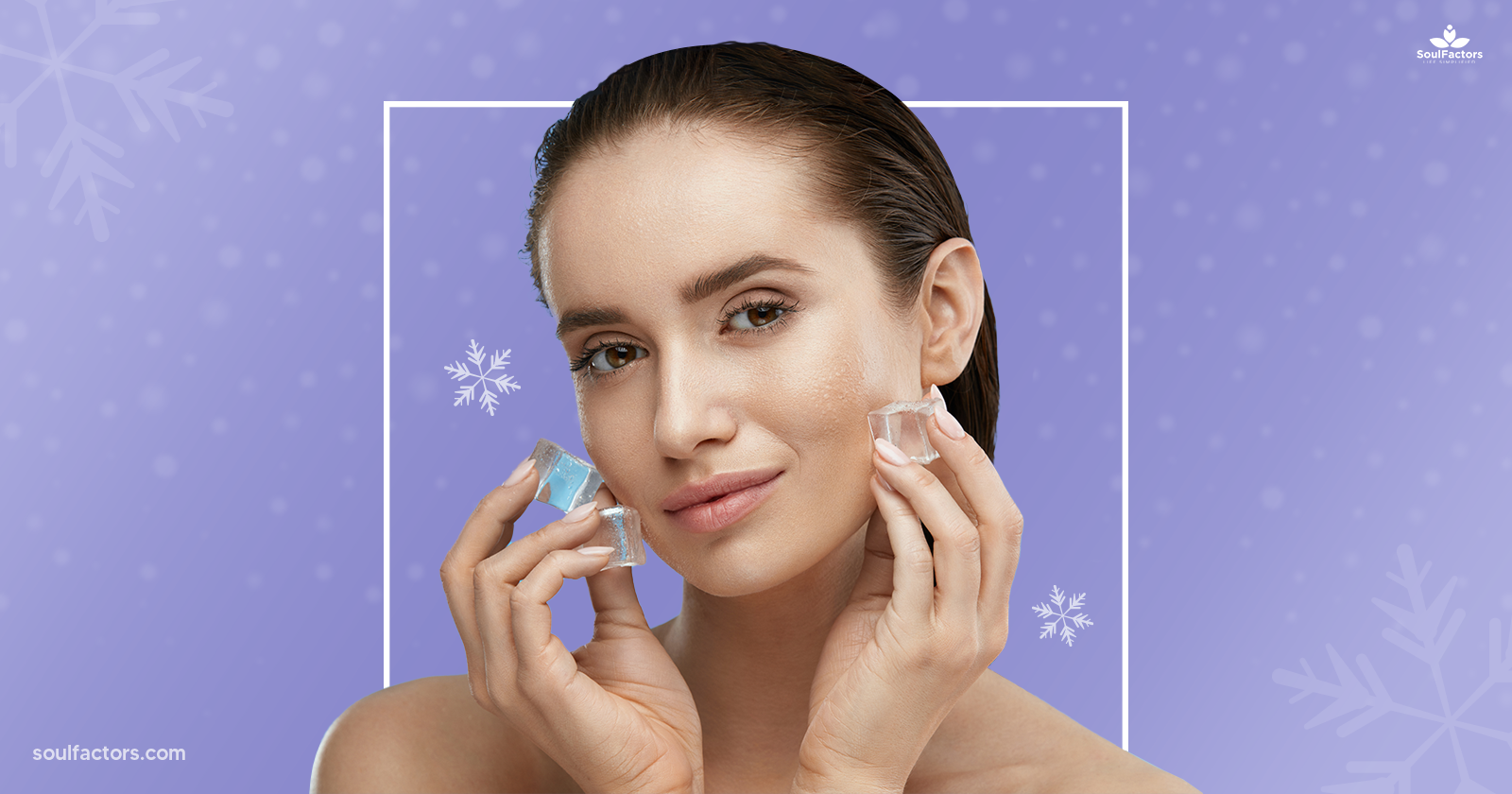
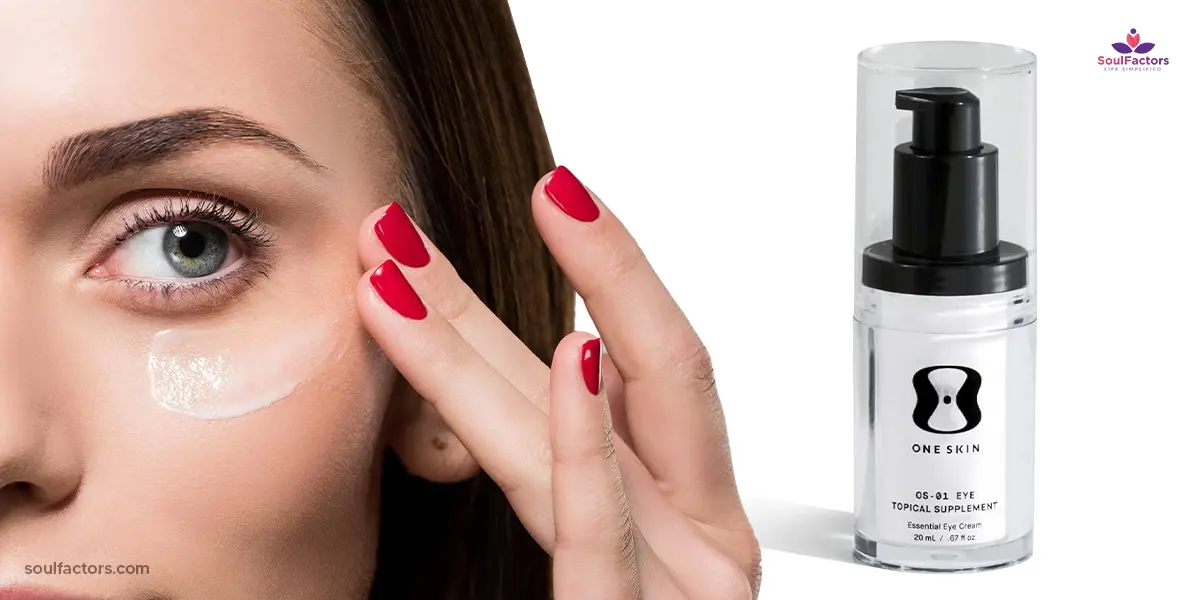
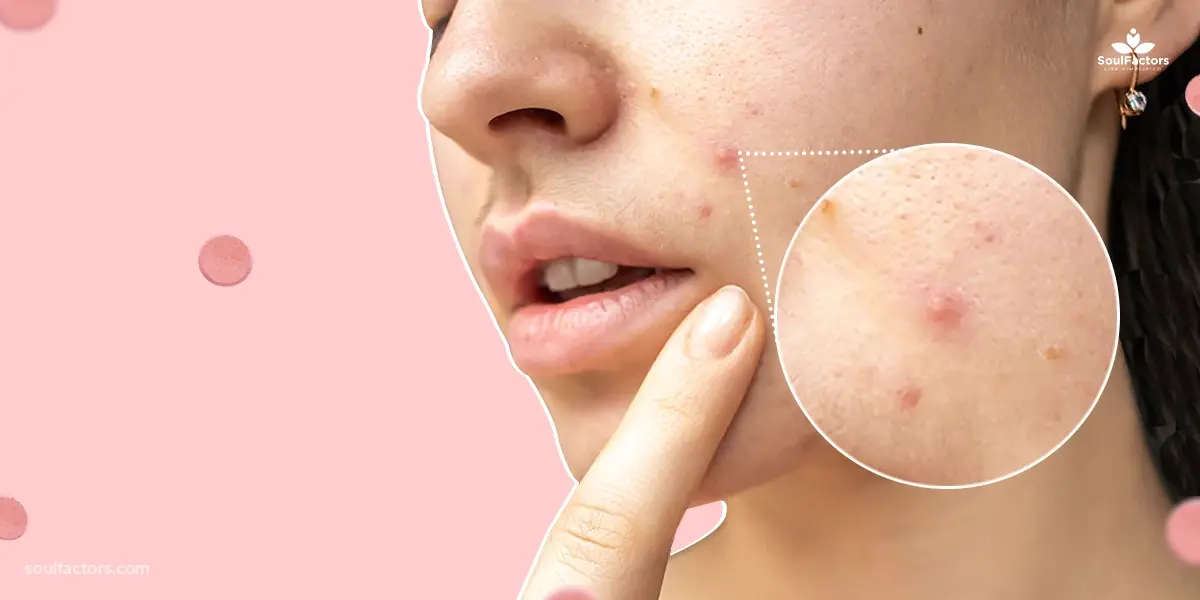
Write a Comment